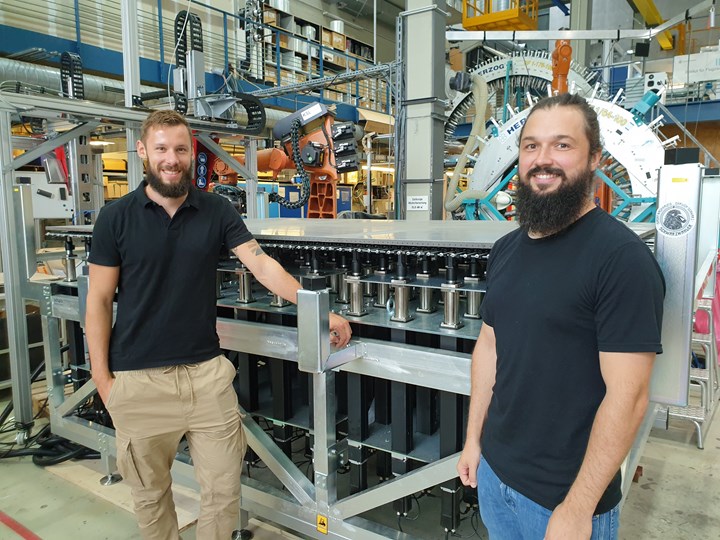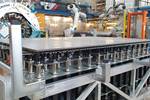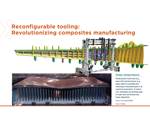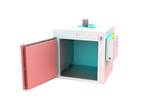University of Stuttgart, Institute of Aircraft Design uses adaptive mold technology from Adapa
Reconfigurable mold aids development of digitally-manufactured composite parts for reduced-emissions transport vehicles.

Florian Helber and Jörg Dittmann at University of Stuttgart are using an Adapa adaptive mold for developing carbon fiber composite parts using robotic manufacturing for the automotive industry. Photo Credit: University of Stuttgart, Institute of Aircraft Design
The University of Stuttgart Institute of Aircraft Design (IFB, Stuttgart, Germany) has chosen an adaptive mold system from Adapa (Aalborg, Denmark) to develop an aerodynamic fairing for road transport vehicles. This composite part is manufactured using the Adapa reconfigurable tooling and collaborating robotic systems based on 3D digital design files.
This development is in cooperation with one of the leading manufacturers of transport vehicles and is aimed at reducing CO2 emissions on their vehicles. The reconfigurable adaptive mold technology will be used to reduce the cost of manufacturing unique designs, tailored to specific vehicles.
The University of Stuttgart IFB is applying their composites design and manufacturing expertise to develop materials and manufacture technologies that interact with predesigned production processes and yet still allow for flexibility in product design while reducing the carbon footprint, which is imperative. Adapa is proud to support this development and effort to improve global vehicle emissions.
Related Content
-
Proper application of semi-permanent mold release systems
Performing regular maintenance of the layup tool for successful sealing and release is required to reduce the risk of part adherence.
-
Fyous launches infinitely reusable manufacturing mold tech
PolyMorphic Moulding technology uses 28,000 digitally controlled pins to create a shape from a 3D CAD shape in less than 20 minutes, achieving zero waste and enabling parts production 14 times faster than 3D printing.
-
Nine factors to consider when designing composites cure tooling
Gary Bond discusses the common pitfalls and compromises when designing good cure tooling and their holistic significance for a robust composite production process.












.jpg;maxWidth=300;quality=90)
